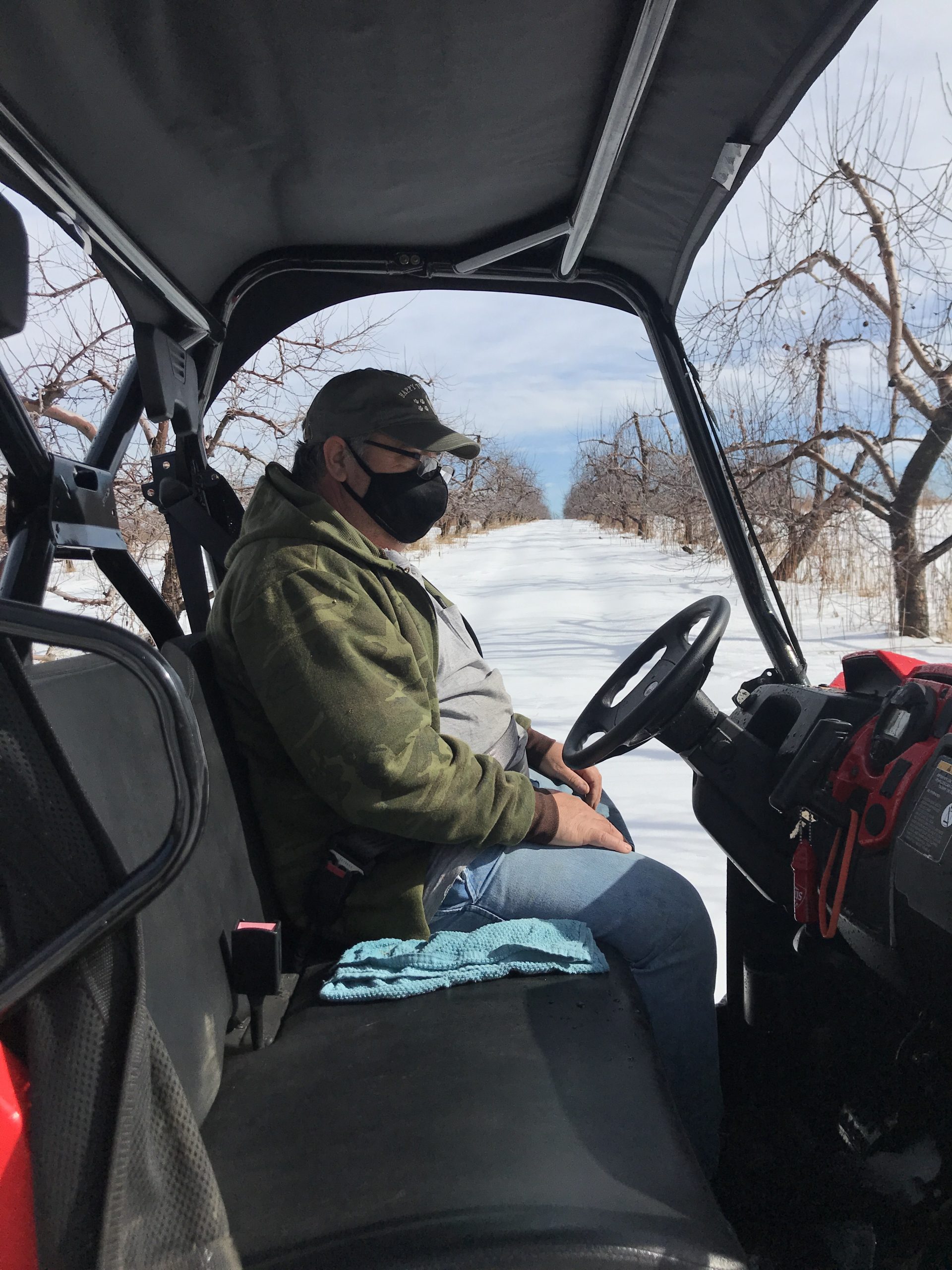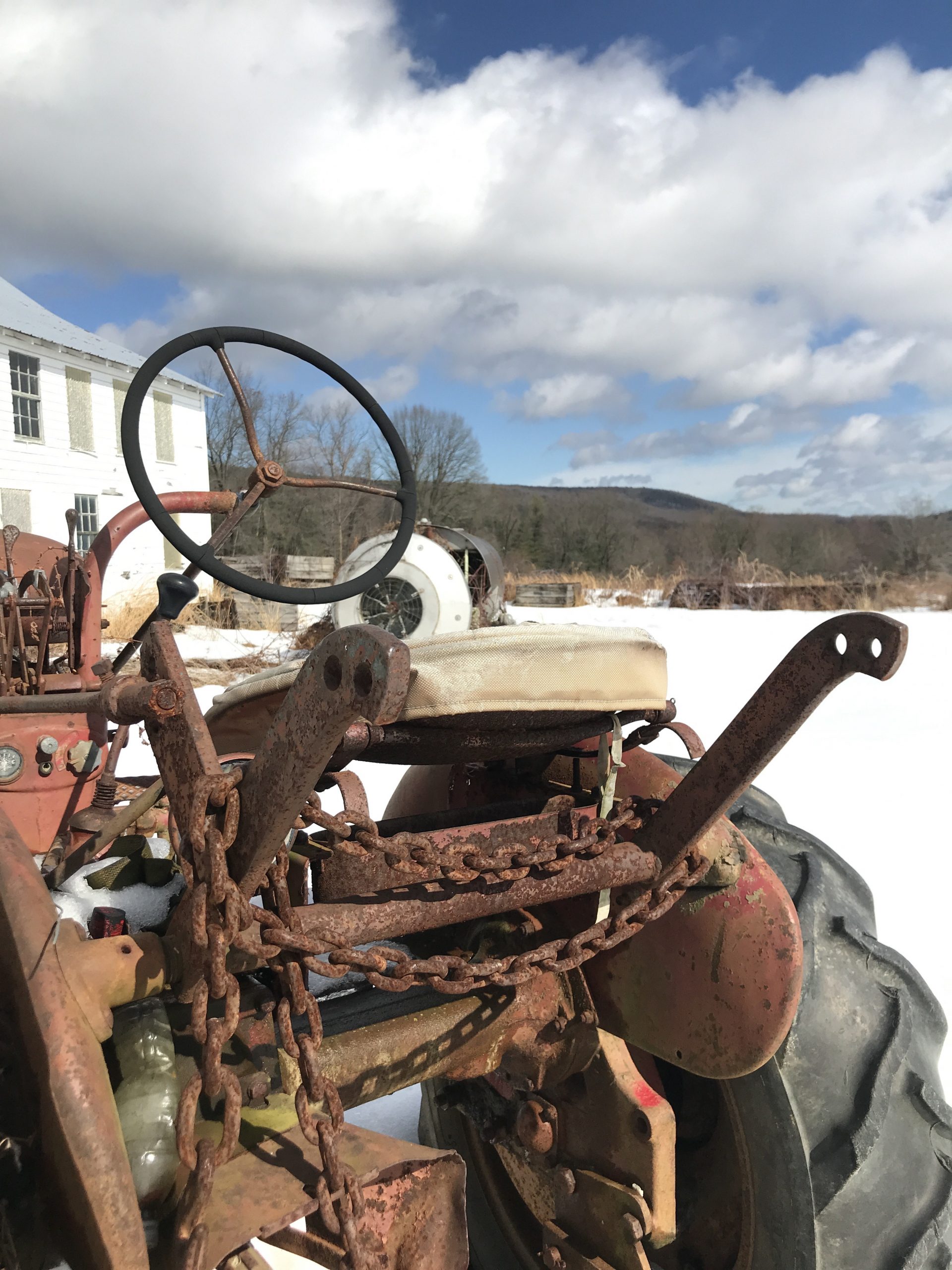Farm Visits
Tuckey’s Mountain Grown
Driving north from Crossroads Farmers Market towards the southern edge of Pennsylvania, the roads led me into Adam’s County, home of the National Apple Museum, historic Gettysburg, and my ultimate destination, Tuckey’s Mountain Grown Fruit, Berries and Vegetables. At the base of the Michaux State Forest, just 15 miles from Gettysburg, Kevin Tuckey operates his family’s farm and orchard that has been in his family since the early 1930s. When I finally arrived, I pulled in to find Kevin getting into his souped-up, red, hybrid golf cart ATV, and ready to take me on a tour of the farm. Although the ground was covered in a few inches of snow, it was sunny and much of the snow on the bare trees was beginning to melt, causing ice crystals to glisten and drop from their branches.
Kevin and I drove into the open gate of his farm, passing the snow-covered dahlia field and into the section of peaches, plums, and apples. We couldn’t make it much further than that, or at least didn’t want to risk it in our vehicle. His family owns around 110 acres of land, 25 of which are in production. His family has 15 acres of apples and another 3-4 acres of peaches and plums, and everything is picked by hand. This year, Kevin is experimenting with 150 blueberry plants in one of his high tunnels, hoping to extend the season and protect them from the neighboring deer. The rest of the land in production is a mix of annuals, cover crops, beans, and dahlias. Dahlia roots need to be pulled out of the ground and replanted in the spring, so our next stop on the tour was to show me where the dahlias are kept during the winter.
We drove back to Kevin’s house and he guided me through the cellar, which is where the dahlia tubers are kept. More than anything, they reminded me of cassava, and when I mentioned this to Kevin, he said that other people he knew ate certain dahlia tubers as well. He gently broke one in half to smell the uniquely earthy, floral scent of the crispy root.
Kevin showed me to the large white barn behind the house that his grandfather built in the early 1950s, using timber from the surrounding area. By far my favorite piece of equipment on the farm was the 1952 tractor that Kevin’s dad had bought brand new. It looks like a relic that one might find in a history museum, but Kevin claims that it still works and he continues to use it to this day.
From the main house, we walked over to the greenhouse, which will soon be home to all of the seedlings to be transplanted throughout the farm. The temperature inside offered a nice respite to the winter wonderland outside. To heat the greenhouse, Kevin uses a wood-burning stove, that looks like it was built in the early 20th century, and a large steel fan opposing it to help regulate the temperature and pull out some of the hot air. I noticed in the corner of the greenhouse a tall, thorny branch popping through the ground. Kevin shared that he had tried planting black raspberries in so many places and that this one just popped up on its own a few years back, so he maintains it for his kids and grandkids to enjoy.
Kevin Tuckey giving me a tour
1952 tractor
In this short visit, I’ve learned that Kevin is a family man who loves to share stories and hear how others use different plants and foods in their own homes. Visiting his home and farm in Pennsylvania provided insight into the rich agrarian history of the region and the small family farms that continue to persist today. Kevin is proud of his family’s farm and history and loves the freedom that rural life offers him, his business, and his family. I hope to be back to visit again when all the trees and plants are full!
– Sara Servin, Crossroads Farmers Market Program Manager
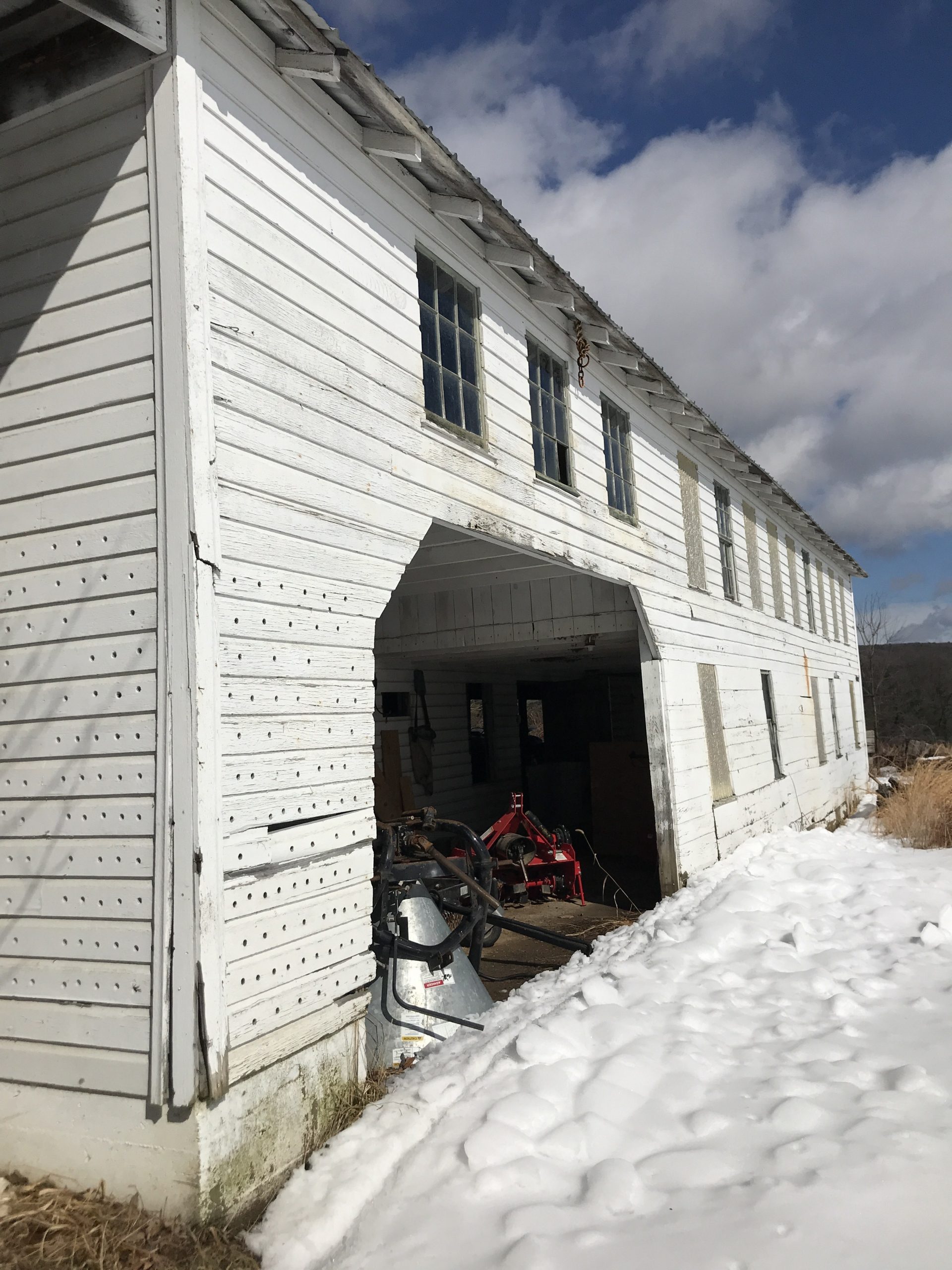
original barn built by Kevin’s grandfather
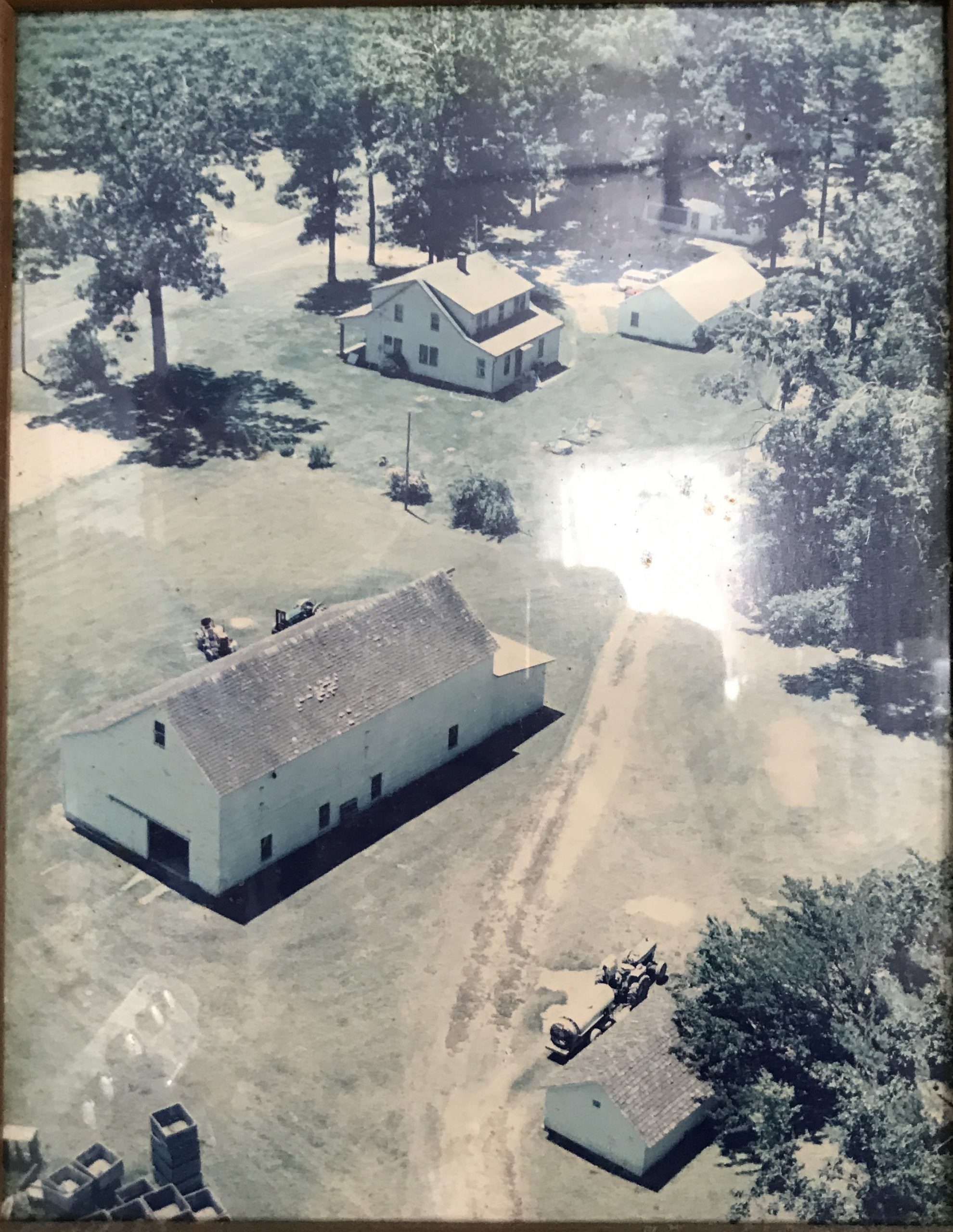
arial view of Tuckey’s Mountain Grown c. 1992
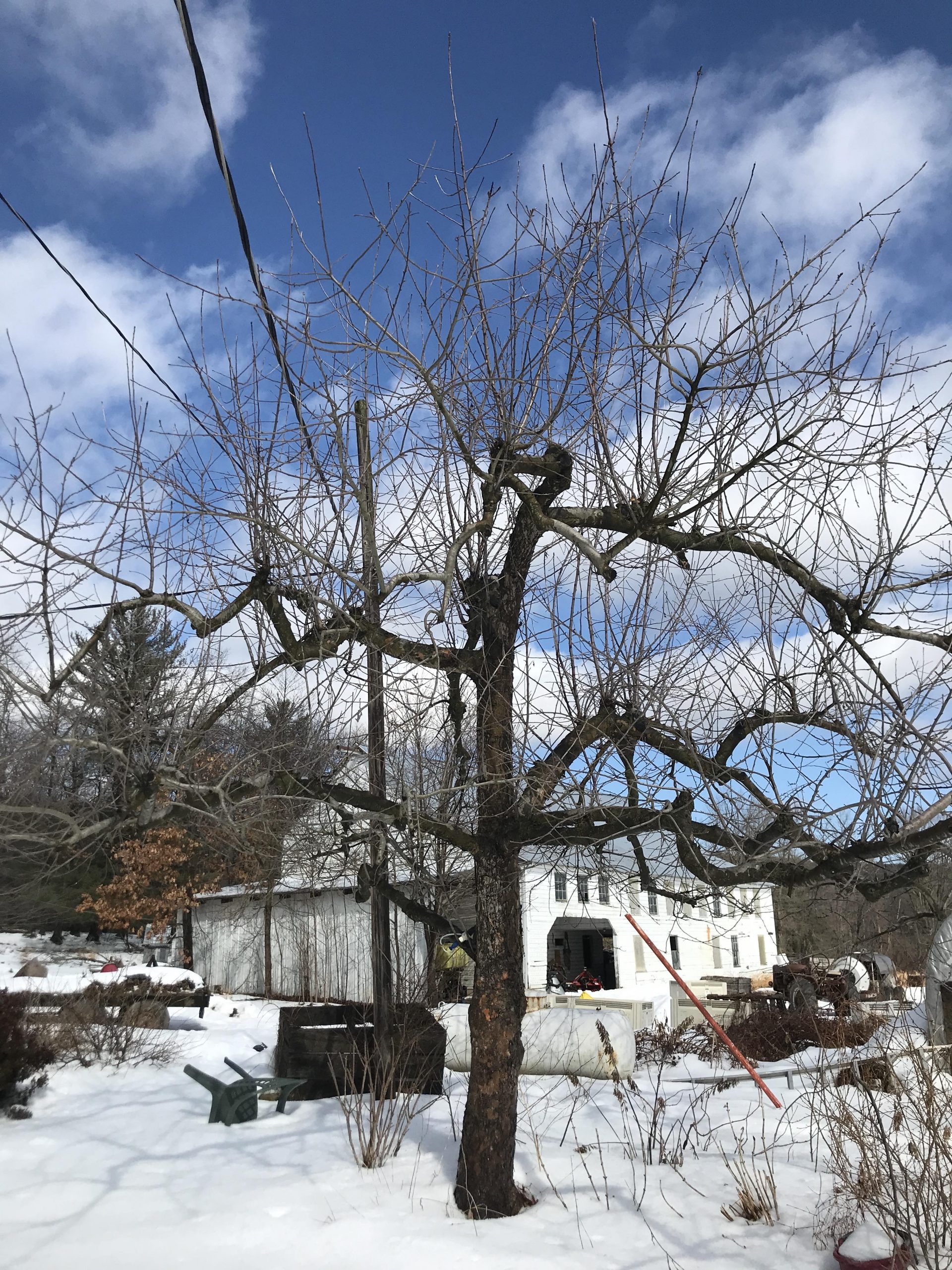
apple tree Kevin planted

